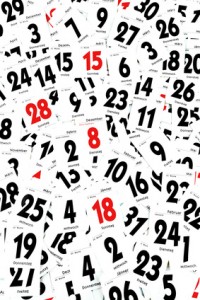 It seems more than simple “chance” that the events I discovered when researching this date in the history of the arts follow on so perfectly from my post about Dr. Martin Luther King, Jr. on Monday.
It seems more than simple “chance” that the events I discovered when researching this date in the history of the arts follow on so perfectly from my post about Dr. Martin Luther King, Jr. on Monday.
Today in music history was a significant day for two prominent African American musicians. On January 23, 1976, singer, actor, and activist Paul Robeson died. On January 23, 1943, pianist Duke Ellington played his first Carnegie Hall concert. Both men have left an indelible mark on the world of music, and indeed, on the world at large.
Paul Robeson is best known for his rich bass singing voice, and his iconic rendition of the song “Old Man River” in the movie musical Showboat. Many people don’t realize that he was a star athlete, that he trained as a lawyer, that he was an acclaimed Shakespearean actor, and that he was an activist in the struggle for civil rights. His activism was bold and strongly voiced, but also showed itself in subtle ways. One line of “Old Man River” was written as “I get weary and sick of trying, I’m tired of living and scared of dying…” but in later performances, Robeson changed that lyric to “I keep laughing instead of crying; We must keep fighting until we’re dying.”
Robeson’s activism caused him to be hounded and persecuted in ways that permanently altered his career and his life. Few people know of him beyond “Old Man River” yet his life is a song that deserves to be sung in its entirety. For more information about this man, there is excellent background about him in PBS’s American Masters series, and the U.S. National Archives has extensive lesson material for schools (and others).
Duke Ellington was one of the greats in jazz history, although apparently he preferred the term “American Music” rather than jazz to describe the music he composed and performed. One of the sources I consulted, the Duke Ellington website, quoted Wynton Marsalis, a modern jazz great, as saying Ellington’s music “sounds like America.” I like that characterization.
The concert Ellington played on January 23, 1943 became the springboard for annual Carnegie Hall concerts at which he debuted works perhaps not as popular as “Take the A Train” and the like, but that showed his immense talent, and his worldview and devotion to expressing history that might otherwise be shunted aside. Works such as his “Black, Brown and Beige” which he explained was dedicated “to the 700 Negroes who came from Haiti to save Savannah during the Revolutionary War,” “Liberian Suite,” and “New World A-Comin'” all gave a voice to this worldview.
To learn more about Ellington, you may read the feature in Carnegie Hall’s A to Z of Carnegie Hall, as well as perusing the riches available at the Duke Ellington website. Last year I reviewed a picture book, Ellington was Not a Street. You can find that review here.
As a fun note of interest — the poster for that first Carnegie Hall concert is part of the A to Z of Carnegie Hall article, and it lists ticket prices. 55 cents, 83 cents, ranging up to $2.75 and $3.30. Thanks to this inflation calculator, I checked what the equivalent to these prices would be in today’s dollar, and they’re still not as expensive as one would expect, ranging from $7.30 to $43.80. By comparison, the ticket price for a Michael Feinstein concert at Carnegie Hall in February 2013 is $92.00!
And one last bit of trivia, in the “six degrees of separation” category, I once had an hour-long lesson in piano improvisation from a jazz pianist who had studied with Duke Ellington. 🙂
Very interesting, Beth! I especially like how Paul Robeson changed the words to Old Man River. And how cool that you took a piano lesson from someone who studied piano with Duke Ellington!!!
Thanks, Susanna! I need to add that the piano lesson was fantastic — and done out of the goodness of the person’s heart.
Fun musical facts. Thanks for reminding us about the picture book. I don’t know why I don’t have Ellington was Not a Street in my collection. Read your review. Can you imagine being a young child surrounded by such legends? Another good recommendation, Beth.
Thanks, Pam. Ellington Was Not a Street is such a good book. Imagining being that child just blows me away. I know you’re going to love the book!
Wow. What a coincidence. Thanks for all this info! I was happy to learn about Mr. Robeson. 😀
Thanks for sharing this great information. I love learning new things about interesting people.